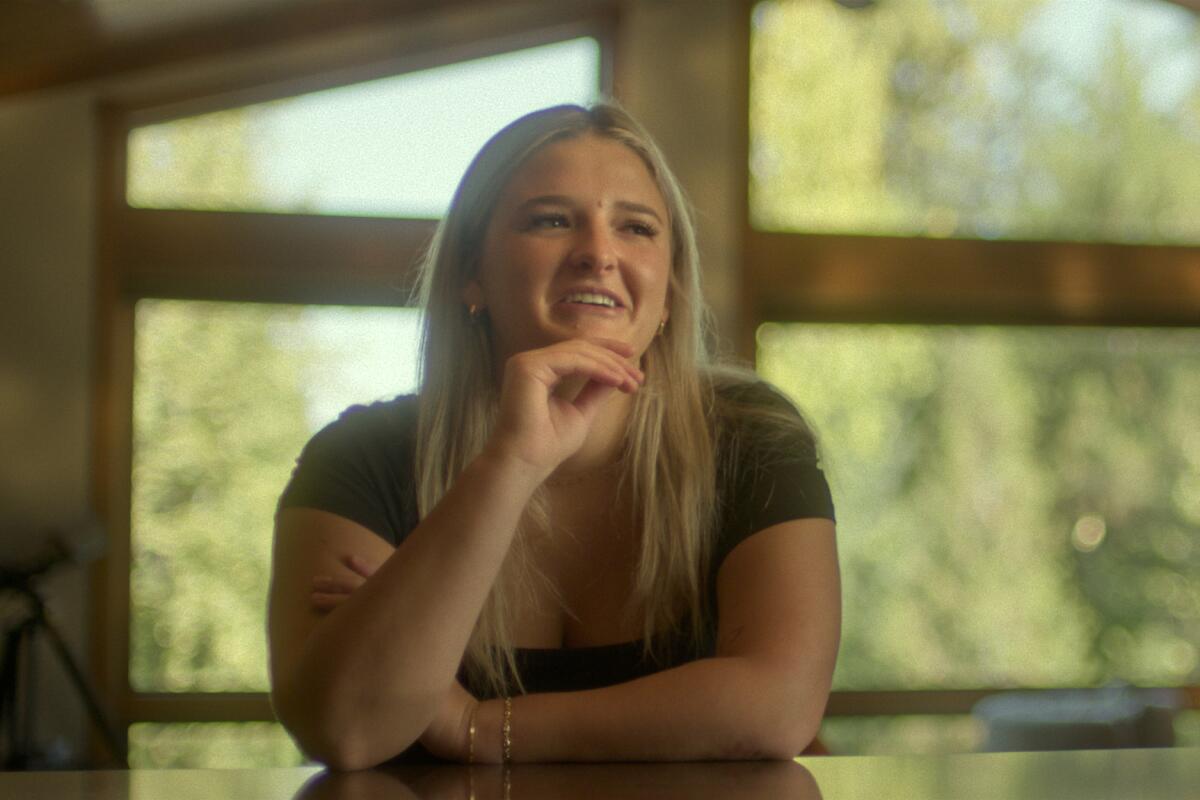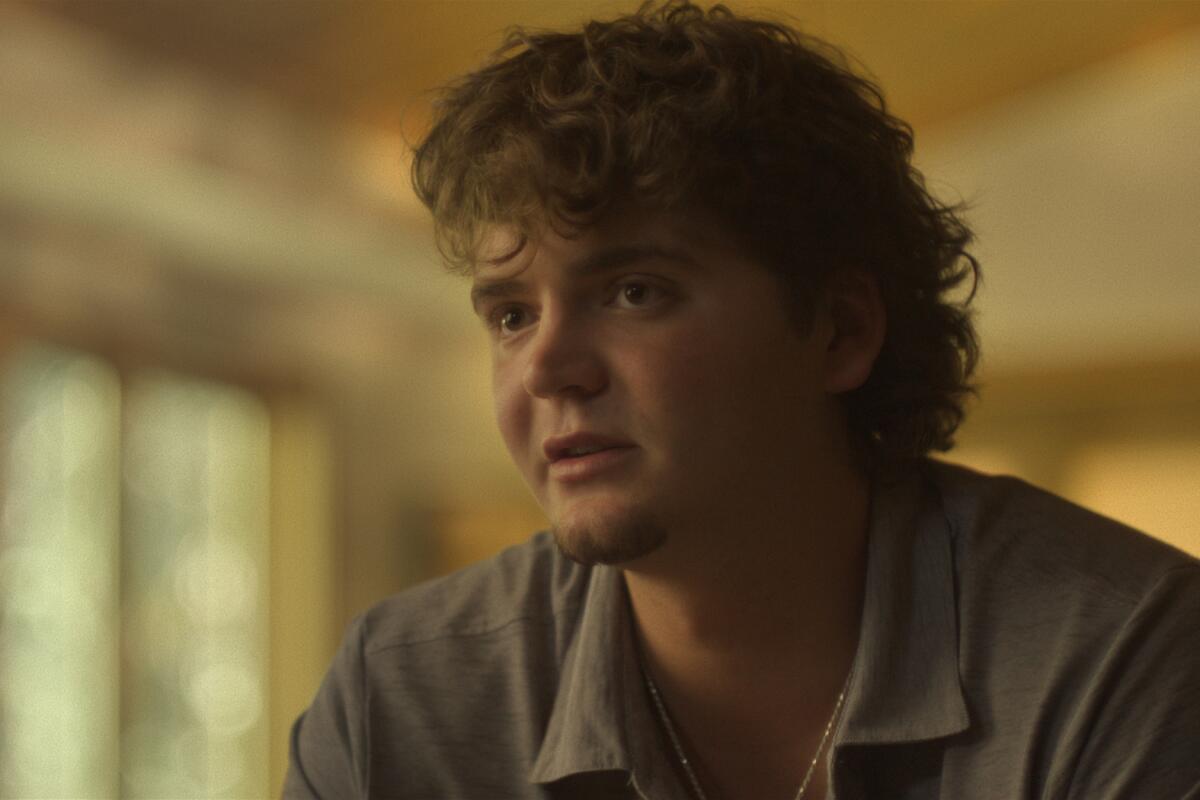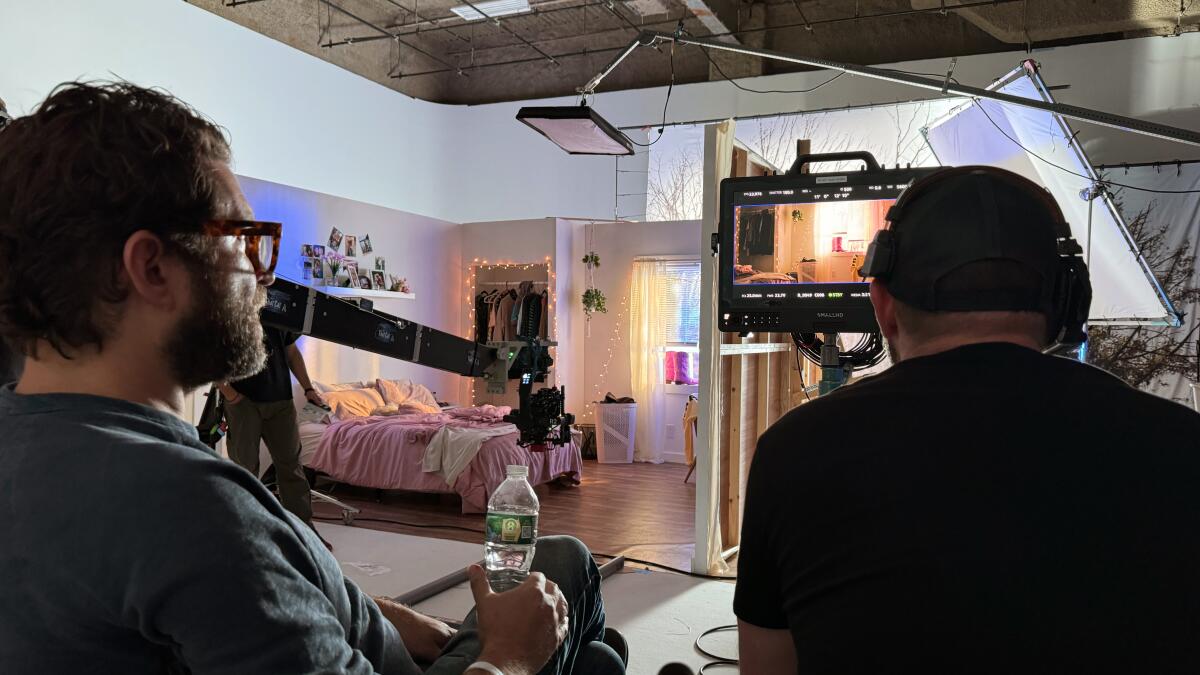It’s the most important query that’s been requested time and again concerning the evening of Nov. 13, 2022, when 4 College of Idaho college students — Ethan Chapin, Xana Kernodle, Madison Mogen and Kaylee Goncalves — have been brutally stabbed to loss of life of their off-campus home within the school city of Moscow, Idaho: Why?
With no obvious motive or clue as to who may have dedicated such a heinous crime, Moscow turned the epicenter of an intense investigation and a social media storm that Prime Video’s “One Night in Idaho: The College Murders” delves into over 4 episodes dropping on Friday.
Liz Garbus (“Gone Girls: The Long Island Serial Killer”) and Matthew Galkin (“Murder in the Bayou”) share directing and govt producing duties on the docuseries, which is predicated on reporting by writer James Patterson and investigative journalist Vicky Ward, and so they knew early on what angle their manufacturing would take. “We decided that a very interesting and unexplored angle was to see what it was like inside the eye of the hurricane,” Galkin says. “So, for the people, the family members, the friends of the victims that had not ever spoken to the media, that was where we chose to focus our energies as far as access is concerned.”
That included unique interviews with Stacy and Jim Chapin, mother and father of 20-year-old Ethan, and Karen and Scott Laramie, mother and father of 21-year-old Mogen, who’ve by no means talked concerning the murders — regardless of quite a few tasks on the topic — and the way it ripped aside not solely the city of Moscow however their respective households.
Garbus and Galkin talked with The Occasions about how they gained the households’ belief, how social media affected the case, and the current twists and turns that occurred simply earlier than the sequence was set to air. For one, on July 2, major suspect Bryan Kohberger, a former felony justice doctoral scholar who was arrested six weeks after the murders, entered a plea settlement with a full confession of the murders — achieved to keep away from the loss of life penalty — simply weeks earlier than his trial was set to start. This dialog has been edited for size and readability.
What have been the origins of your involvement within the manufacturing and with crime novelist James Patterson?
Matthew Galkin: This was a narrative that I began monitoring, clearly, when it occurred, which was mid-November of 2022, and I didn’t make any outreach to any key individuals throughout the story, any of the households, till it was nearly spring of 2023. We have been monitoring it to see the way it developed as soon as they made an arrest and as soon as we may see the contours of the story and that issues like social media performed a serious half within the power created round this story.
Liz Garbus: Concurrently, as Matthew was laying the muse for this by reaching out and attempting to see the place the households have been on this story, I obtained outreach from James Patterson’s firm about their curiosity in collaborating on a challenge round this case. That was fairly fortuitous, and we laid a few of these constructing blocks collectively and shared entry and analysis. The movie was made by its filmmakers, and the e book [“The Idaho Four: An American Tragedy” by Patterson and Ward, which is being released on July 14] was reported by its writers, so that they have been working on parallel tracks. We have been capable of help and assist one another, however, actually, Matthew’s unique outreach to the Chapin household is what laid the constructing blocks for this present and is de facto the bedrock of it.
Matthew Galkin, co-director of Prime Video’s “One Night in Idaho: The College Murders.”
(Matthew Galkin)
How was the gag order for legislation enforcement and different key individuals near the case a problem in telling your story?
Galkin: On this explicit story, there was a possible trigger affidavit that was filed in early January of ’23, which actually laid out, as much as that time, what investigative particulars existed as a way to convey legislation enforcement towards the suspect and in the end make the arrest. So we have been in a position, on the very least, to inform that story by the main points we discovered by the possible trigger affidavit.
It’s all the time a problem in the event you don’t have the entire collaborating members of a narrative to attempt to inform the whole story. However in my previous work, we tended to select tasks which might be victim-centric greater than legislation enforcement-centric. I’ve had expertise telling tales by that perspective, so in a number of methods, the restricted entry that we had really lined up with the story we have been attempting to inform anyway.
Garbus: Even on “Gone Girls,” which was a present I made not too long ago for Netflix, these murders have been 10, 20, 30 years outdated. There have been no gag orders, however there have been sure individuals who didn’t wish to speak for their very own causes, so typically, as documentary filmmakers, it’s important to decide a lane. What are you bringing to the story? What standpoint are you able to totally specific? And we clearly had that lane right here.
And when you might have that lane so clear early on, does that truly assist get individuals to speak to you, particularly those that hadn’t spoken to anybody earlier than?
Galkin: I flew out to Washington state, and the primary contact I made was to Jim and Stacy Chapin, who’re the mother and father of Ethan, Hunter and Maizie. I satisfied them to let me take them to lunch and simply speak by what our imaginative and prescient of easy methods to inform the story can be. I used to be in all probability the fiftieth in line to attempt to make a documentary challenge about it. They’ve been inundated at that time, and it was in all probability 5 or 6 months of journalists, documentary filmmakers [and] podcasters simply popping out of the woodwork.
I do know for a truth they checked out Liz’s observe file, they checked out my observe file, and I believe they felt comfy in the truth that if we have been going to do crime tales, they weren’t often from the killer’s standpoint and even from legislation enforcement standpoint. It’s often from household or sufferer, so I believe that gave them some consolation to know that they’d have actual enter in how Ethan’s story was instructed. They preferred the concept of selecting one challenge to actually go deep on and be capable of assist put Ethan’s narrative out to the world by their very own voice, versus different individuals who didn’t know Ethan telling it.


Maizie and Hunter Chapin have been Ethan’s siblings. Each have been interviewed for the documentary together with their mother and father. (Courtesy of Prime Video)
Do you know early on that social media would play such a giant half within the case?
Galkin: It was really the 2 principal matters of dialog. My first dialog with the Chapins was our imaginative and prescient of how we have been going to inform the story and likewise their expertise coping with the insane noise and pressures of social media sleuths and folks reaching out, going into their DMs, creating theories about their youngsters, about them, about their youngsters’s associates — simply the madness. Clearly, there have been crime tales that take care of social media, however I’ve by no means skilled one thing of this magnitude with this a lot social media consideration.
Garbus: Social media has change into a lot of the environment within the telling and digestion of crimes within the American public’s creativeness of them. In some circumstances, it may be useful, just like the case of the Lengthy Island serial killer, the place the victims weren’t commanding nationwide curiosity, and social media and advocates can play an enormous function. Then there are different instances by which the voracious appetites can overtake the story.
In your sequence, you don’t spend a number of time dissecting all of the grotesque particulars of the murders. Was that as a result of legislation enforcement gag order?
Garbus: If you’re with these households and also you expertise the grief and trauma by them, that’s form of what you have to know. The methods by which the ripple impact of the trauma has affected this whole good friend group and all of those younger individuals, that speaks volumes to what occurred that day and we wished to expertise it by them.
Given the current developments with Kohberger’s plea deal, did you modify the tag on the finish of your present?
Garbus: Due to some nice postproduction supervisors and assistants, we can be updating the top card to have viewers be updated with the plea.

Matthew Galkin and director of images Jeff Hutchens on set of the re-created King Highway home, the place the murders occurred, in “One Night in Idaho: The College Murders.”
(Matthew Galkin)
Within the latter half of the sequence, there’s speak about Kohberger and the notion of him being an incel, or involuntary celibate [where a person, usually male, is frustrated by a lack of sexual experiences]. How did that assist perceive a possible motive within the murders?
Garbus: That was one thing that was very fascinating to us proper initially: Why have been these younger ladies focused? We might by no means know with this plea deal now and it could stay a thriller, however there have been indicators, for certain, about involvement in that tradition for us to discover that angle. As households watch this and so they’re sitting with their sons and questioning what they is perhaps doing on-line, that is the form of dialog that folks should be having concerning the media, the infiltration of messages that younger males obtain at present and it’s solely getting extra excessive on this second.
Was 4 episodes all the time the quantity to inform this story? Clearly, the case remains to be unfolding with Kohberger’s plea settlement. May a sequel occur?
Galkin: 4 episodes felt like the correct amount of area to inform the story that we instructed. Clearly, there are nonetheless chapters unfolding, and if there may be an urge for food to proceed to inform this story with our topics and all of our companions, then actually I believe we’d be open to doing that. However we really feel like we instructed a whole story right here … each episode gives a pivot as to the views that we’re seeing this case by, and each episode has a distinct lens.
Garbus: Clearly, our filmmaking stops at a sure level. You’ve had this plea deal, and the gag order can be lifted, so it’s a capsule of time of what the households knew and understood since this tragedy occurred up till a few months in the past. We’ll see over the subsequent weeks and months how rather more we’ll study, however it’s a fragment of expertise very a lot rooted in time.
Garbus: In some methods you don’t give it some thought, however on the similar time, whenever you’re setting off to make a challenge like this, you wish to be sure to are saying one thing distinctive. We’re going to spend X variety of years of our lives on this, and also you wish to be sure to’re including one thing new to the discourse on the case. And, after all, it issues to us that that is the place the place the Chapins and the Laramies will inform their story and that we’re capable of care for it for them and the buddies in the way in which that we meant. It issues simply in that you simply wish to be sure to have a lane that’s wanted within the discourse and I believe on this case we felt very clearly that we did.
Galkin: We knew from Day 1, given the entry that we had, that our sequence can be distinctive to the rest available on the market, as a result of these are those who have by no means instructed their story earlier than, and the way in which we have been planning on doing it, which was actually from the within, with none type of outsider voices. In order that was not an nervousness for us.


